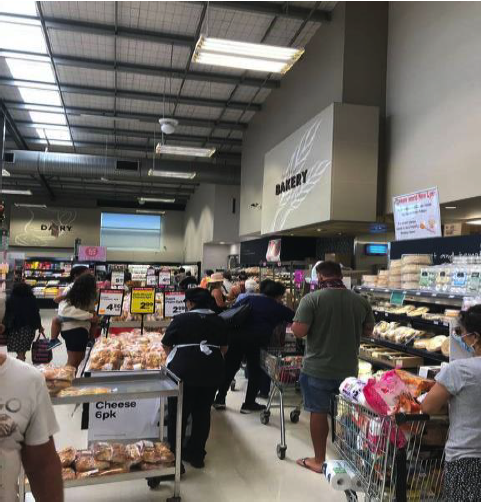The Ministry of Social Development (MSD) has made some temporary changes to document requirements as part of the COVID-19 response. The changes are helping to make things easier for people and ensure they continue to receive support during this time.
Here is an overview of some key changes they’ve made:
No medical certificate renewals for existing clients
People already getting Jobseeker Support, Sole Parent Support or Supported Living Payment don’t need to provide another medical certificate. They’ll continue to be paid as normal. This includes the Work Capacity Medical Certificate.
No medical certificates for new clients
For now, MSD won’t ask people to go get a medical certificate if they have no other reason to consult a health practitioner.
However, if someone already has a medical certificate, MSD will use this in their application.
When a person doesn’t have any of the usual medical verification (for example a Medical Certificate or Specialist reports), MSD will look at other options like granting an Emergency Benefit so they can still get support.
Temporary changes for Disability Allowance
People applying for the Disability Allowance for the first time, or an existing client with a new or increased costs, won’t need to provide receipts or invoices to verify these costs.
They also won’t need to provide a medical certificate to verify their eligibility and costs.
However the eligibility criteria for Disability Allowance haven’t changed so applications for items such as unfunded medications or services will need evidence of essential need to qualify for assistance.
Deferring reviews
For now, there will be no annual reviews (for example for Disability Allowance or Child Disability Allowance) or social housing reviews. This means if someone
would normally have a review, they won’t need to do anything – they’ll continue getting paid.
More information
The best place to go for the latest information on ways MSD can help is their website. Go to www.workandincome.govt.nz.
MSD makes additional funding available …
The Government has made additional funding available to support the wellbeing of disabled people including people with health and mental health conditions by trying to limit the impacts of anxiety and loneliness during the Covid-19 response. This funding is to enable organisations to continue providing support during alert level 4, alert level 3 and any periods of self-isolation.
How can the funding be used?
Organisations can use the funding to:
- employ additional staff to provide regular support to disabled people and their families/whanau. This support can be provided through a variety of channels including face to face (for essential service providers and following Ministry of Health Guidelines) email, Facebook, texts or phone calls
- develop resources to provide activities for people at home. This can include setting up and managing private Facebook groups, developing YouTube videos, video conferencing, creating and sending hard copy activity packs, sending art supplies and supporting the develop of peer support networks. We’ve pulled together some ideas from MSD funded providers and have attached them to this email.
Who is the funding for?
Priority will be given to funding organisations supporting disabled people including people with health or mental health conditions who:
- live alone
- live with family/whanau
- are in Contract Board
- live in a flat; or
- live in rural or isolated areas
Funding amount
If your application meets the funding criteria you will receive a one of payment of $18,500. You may receive more if you are supporting a large number of people in the priority groups. The funding will be paid as a lump sum.
Reporting
You will be asked to provide a brief report detailing how you have used the funding in early July.
How to apply:
Complete the attached form and send it to participation_inclusion_services@workandincome.govt.nz. We will review your application and get back to you if we need more information.

